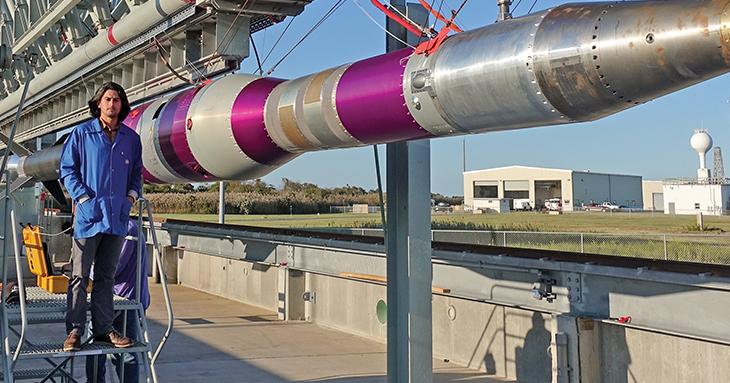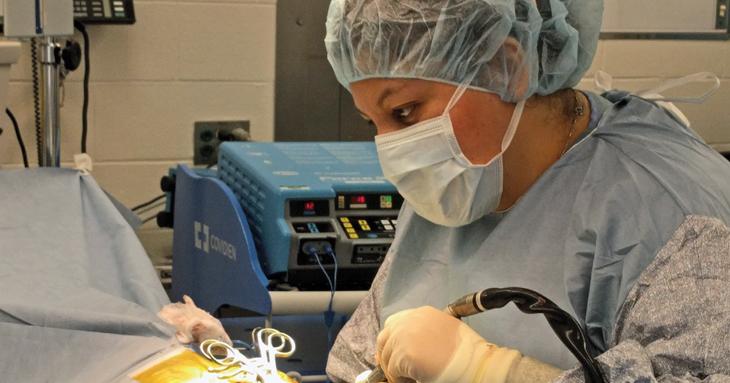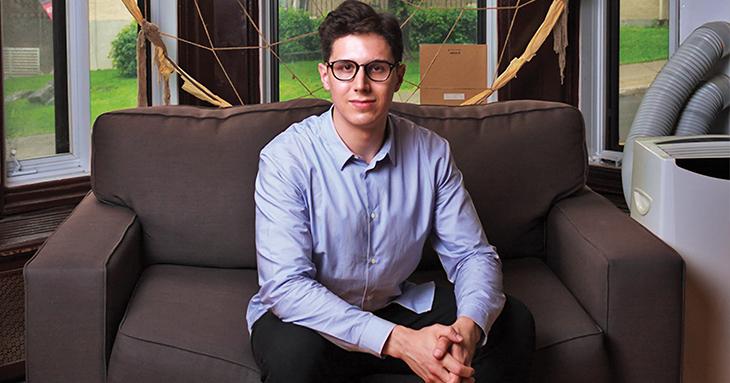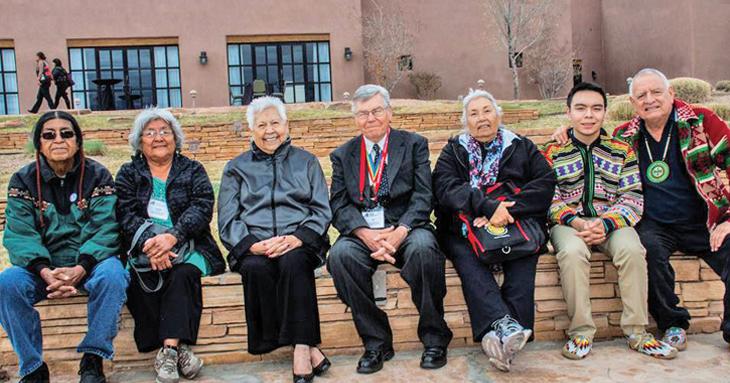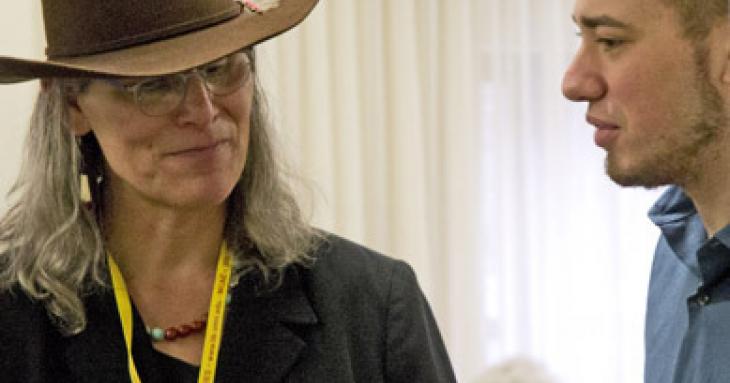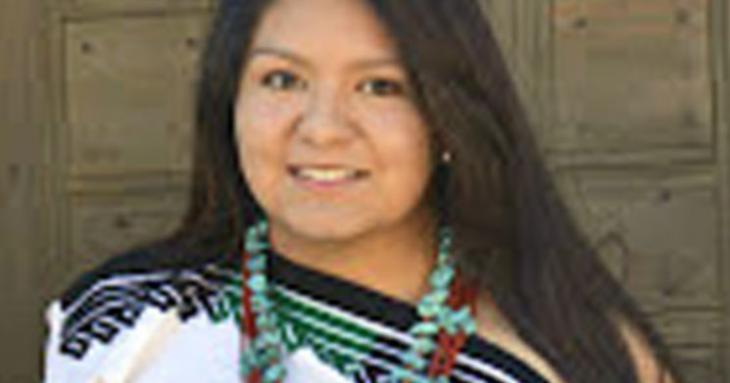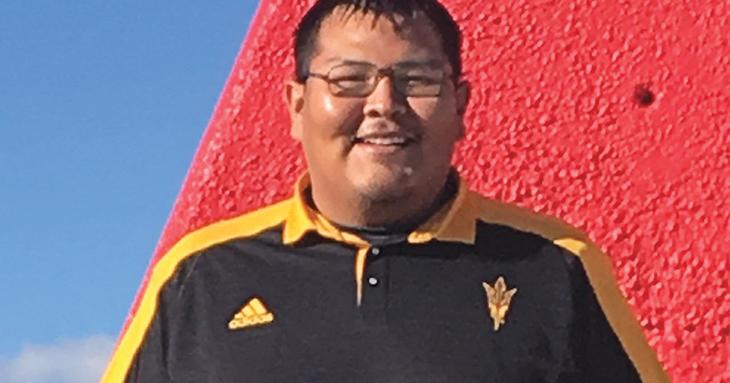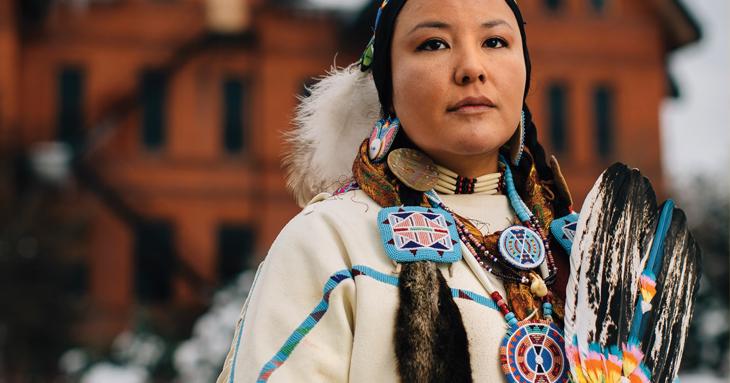-
Josef Sanchez / Mescalero Apache / Jet Propulsion Laboratory / Aerospace Engineering
At NASA’s Jet Propulsion Laboratory (JPL) in Pasadena, Calif., there’s something big happening. It’s called Mars 2020 — a mission to position NASA’s next Mars rover so it can investigate a region where the ancient environment may have been favorable to microbial life. Translation: the search for signs of life on the Red Planet is heating up.
-
Dr. Evelyn Galban / Washoe And Paiute / University of Pennsylvania / Clinical Assistant Professor of Neurology and Neurosurgery
If you’re passing an operating room at the University of Pennsylvania’s Ryan Veterinary Hospital and hear some funky jazz or Hawaiian guitar, chances are the surgeon is Dr. Evelyn Galban. “I always have music to defuse the stress. Every decision I make must be in the best interest of the patient, which as you can imagine is hard to explain to them,” says Galban, a clinical assistant professor of neurology and neurosurgery in Penn Vet’s Department of Clinical Studies. “My biggest concern is always for their well-being.”
-
Alex Allard / Listuguj Mi’gmaq / Mcgill University / Physiology and Kinesiology
Alex Allard has always been interested in biology — and in helping people. So it’s no surprise that these interests shaped his academic studies. His path has not been easy, but having recently graduated from McGill University in Montreal with a major in physiology and a minor in kinesiology, Allard is poised to make his mark.
-
Spotlighting Our Elders: The Council of Elders is an AISES mainstay
Meet the Council of Elders. Focusing on the mission: The Council of Elders Keeps AISES Grounded.
-
Thinking of a Career Switch? Consider Teaching
You’ve been on your current career path for a few years — or maybe it’s only a few months — and you suspect this isn’t where you want to be long term. Maybe you don’t find the work rewarding, or you aren’t making the meaningful connections you expected. If the nagging dissatisfaction is persistent and growing, it may be time to consider switching careers. Especially if you’re looking for more personal satisfaction, a career change to teaching is something to consider.
-
ASK A PROFESSIONAL: Wren Walker Robbins, Salish Kootenai College
Wren Walker Robbins earned a PhD in cell biology, then switched careers to teaching more than a decade ago. Now the director of the Secondary Science Education program at Salish Kootenai College in Pablo, Mont., she says making the decision to switch careers should entail careful thought — and the result should reflect who you are as a person.
-
Student Q&A: Patricia Bancroft
Patricia Bancroft is a senior at Northern Arizona University majoring in biology and minoring in chemistry. She’s learned a lot, both in and outside class, including holding leadership positions in the AISES College Chapter. Here are some of Patricia’s tips on keeping that midyear enthusiasm
-
Re-energize for the New Spring Term: Here’s How to Make the Most of this Semester
It’s winter. The holiday break is a memory, and you’re settling in to the new term. And while it may seem that having been gone for a few weeks shouldn’t make a difference, we all know it does. So it’s important to think about things you can do to gear up for a great spring semester.
-
Brandon Begay / Navajo / Arizona State University / Biochemistry
I’m the first in my family to attend university. Early on, my parents told me how much school would help me in the future, but I never really thought of going to college after high school. I thought I would find a job somewhere around Shiprock, N.M., and maybe take a few classes at San Juan College, a local community college. It wasn’t until my senior year in high school that two Teach for America teachers opened my eyes to my full academic potential. They challenged me in AP Calculus and Honors Chemistry and helped me apply to several colleges and scholarships.
-
A Balanced Future: Trisheena Kills Pretty Enemy Melds Interests in Native Culture And Science
When I was six years old, my older sister bought me a toy microscope. The first thing we did was prick her finger so we could look at a drop of blood under the microscope.


